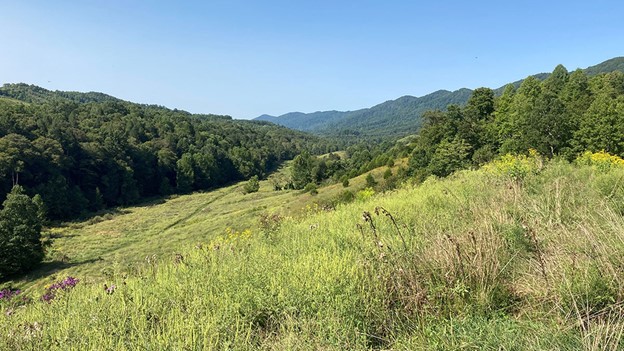We may be biased, but we think the real reason Tennessee is called the “Volunteer State” is because of the Rocky Mountain Elk Foundation volunteers that work tirelessly to ensure the prosperity of the state’s growing elk herd. Expanding from a herd of 50 individuals when RMEF was integral in reintroducing an elk herd to the state in 2000, to the roughly 400 animals that roam the hills these days, Tennessee is a fantastic demonstration of the potential of eastern elk reintroductions. The success of the herds would not be possible without committed RMEF volunteers that give their time and talents to conserving elk and elk country. Here are a few recent projects, made possible, in part, by commendable fundraising efforts and on the ground help from volunteers.
Elk Take Flight
As with any big-game animal, having an intimate understanding of the factors that influence elk populations is critical for informing management. And sometimes, that work requires the use of helicopters. In Tennessee, researchers with the Tennessee Wildlife Resources Agency, University of Tennessee and Kentucky Department of Fish and Wildlife Resources are teaming up to monitor calf mortality within Tennessee’s herds. Thanks to $842,662 in funding provided by RMEF and other conservation partners, researchers were able to capture cows with the use of helicopters and implant transmitters to know when calves hit the ground. Upon birth, the calves will be fitted with collars of their own. Their new piece of jewelry will monitor them over the course of their lives. It’s the hope that these calves live to grow old, but if they don’t, the collars will allow researchers to better understand the factors that limit the growth of the population. Funding for projects like this is generated by volunteers from throughout the state’s five chapters. Through hosting banquets and other fundraising events, volunteers generate critical funding to support the work of biologists who are committed to fostering health among the state’s elk.
Room with a View
Seeing the need to open up more areas for the recently established elk herd, RMEF helped purchase 74,000 acres of critical elk habitat north of Knoxville in 2002. The site, which became known as the North Cumberland Wildlife Management Area, is rich with elk that will benefit from newly improved forage thanks to a new RMEF initiative that is being backed by volunteer support. RMEF has continued its commitment to improving elk country within this popular area for elk viewing by trucking in tons of seed and fertilizer to benefit these herds. To keep the newly planted oats, wheat, winter peas and clover producing bounties for years to come, RMEF volunteers will put in work. “The work doesn’t stop when the seed is planted,” says RMEF Regional Director Drew Parker. “RMEF volunteers will help maintain this forage by assisting with mowing, invasive weed treatment, and re-seeding, as necessary. Our phenomenal volunteers are eager to get in on the action to help maintain these spaces.” After working, volunteers can kick their feet up and watch the elk enjoy these spaces from the incredibly popular Hatfield Knob viewing tower.
Improving Access
No group of people rallies quite like enthusiastic Rocky Mountain Elk Foundation volunteers when it comes to improving elk habitat and passing on hunting heritage. In 2023, Tennessee’s chapters generated over $162,000 in net revenue to support the mission of the RMEF. These funds are then allocated to projects such as purchasing tracts of land, with the most recent example in the North Cumberland Wildlife Management Area. RMEF threw financial support behind other conservation partners to help purchase an 850-acre parcel (see photo above) that will improve public access in the state’s elk zone.
